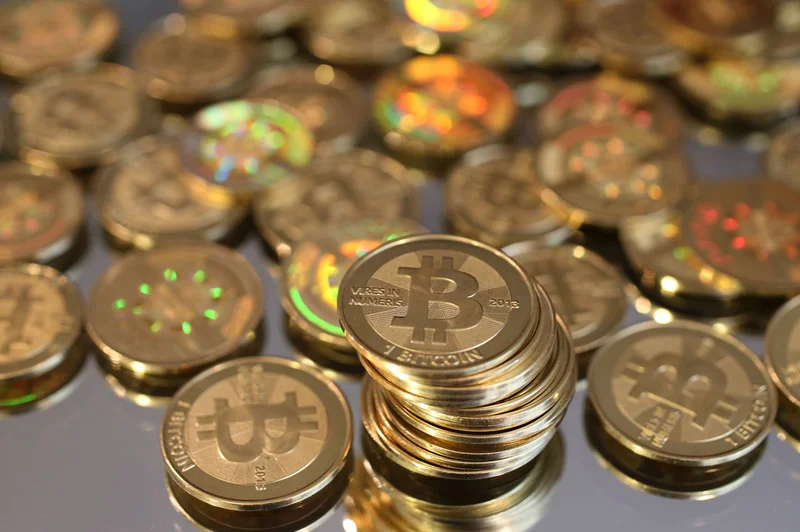Bitcoin Liquidity Injection: What the Hell is Going On?
So, the Fed’s printing money again, disguised as a "liquidity injection." And, naturally, the crypto bros are celebrating on X. Give me a break. It’s always the same song and dance.
The Fed's "Oops, We Printed More Money" Moment
$29.4 billion into the banking system via the standing repo facility (SRF). Biggest injection since the 2020 pandemic. Right, because that went so well. They call it easing liquidity concerns. I call it kicking the can down the road while pretending to be responsible adults.
Andy Constan, CEO of some outfit called Damped Spring Advisors, says it's "a little interbank rebalance." A little? That's like saying a tsunami is a "little" wave. These guys are always so eager to downplay the obvious. It'll all work itself out fine, he says. Sure, just like everything else always does.
Bank reserves had slipped to $2.8 trillion, apparently. Trillion. And that was enough to send them scrambling. What kind of a system are we running here? A house of cards built on the shifting sands of…well, more debt.
The Treasury’s bulking up its checking account at the Fed, they say. The TGA. Like any of us normal folk even know what that means. It's just another way to make things even more opaque, offcourse.
Quantum Fears: Real Threat or Crypto FUD?
And while the Fed’s busy playing Whac-A-Mole with the economy, everyone's suddenly panicking about quantum computers cracking Bitcoin. Yoon Auh warns that a mistaken claim could set off a chain reaction. A chain reaction of what? More panic selling? As if Bitcoin needed another reason to be volatile.
Nic Carter calls quantum computing “the biggest risk to Bitcoin.” Really? Bigger than, say, the inherent instability of the entire crypto market? Bigger than rug pulls and pump-and-dump schemes? I find that hard to believe.

They say a quantum computer powerful enough to run Shor’s algorithm could reveal private keys. Around 2,000 to 3,000 logical qubits are needed to break Bitcoin’s encryption. IBM and Google are projecting those machines in the early to mid-2030s. So, what, we have, like, ten years to figure this out? Maybe?
I mean, a 2022 presidential directive ordered federal agencies to upgrade to post-quantum encryption. So, the government is taking it seriously. That should tell you something, right? Or maybe it just means they're wasting more taxpayer money on another boondoggle. I can't decide which is more likely.
Then again, Scott Aaronson, a computer science professor, says Bitcoin’s decentralized model makes upgrades difficult. Okay, that makes sense. Because getting a bunch of internet randos to agree on anything is like herding cats on…well, on the internet.
But wait, are we really supposed to believe that the same people who think Dogecoin is a good investment are going to suddenly become experts in post-quantum cryptography and implement a seamless upgrade to the Bitcoin network?
Christopher Peikert believes quantum computation has a reasonable probability of being a major, even existential, long-term risk to Bitcoin. Existential. Dramatic much?
The "Fix" Is Already Here?
There are already "quantum-resistant" ledgers and algorithms out there. Quantum Resistant Ledger (QRL) uses the XMSS hash-based signature scheme. Cellframe and Algorand use lattice-based algorithms. Ethereum’s 3.0 roadmap includes active research for post‑quantum signatures. Bitcoin’s Taproot and Schnorr upgrades provide the groundwork for integrating quantum‑safe cryptography.
So, the solutions exist. The problem isn't technology; it’s adoption. It’s convincing the crypto bros to actually do something other than shill their latest shitcoin. And let's be real, that ain't gonna happen overnight.
Crypto's Always Got a Doomsday Clock Ticking...
I'm calling BS on the quantum apocalypse. It's just another excuse for the crypto whales to manipulate the market and scare the little guys into selling low. They expect us to believe this nonsense, and honestly...maybe I'm just too cynical. Nah.
Tags: bitcoin
OpenAI News: Sam Altman's Response and the Future of AI Innovation
Next PostCRBU Stock: Caribou's ANTLER Phase 1 Results and What They Mean for the Future
Related Articles
